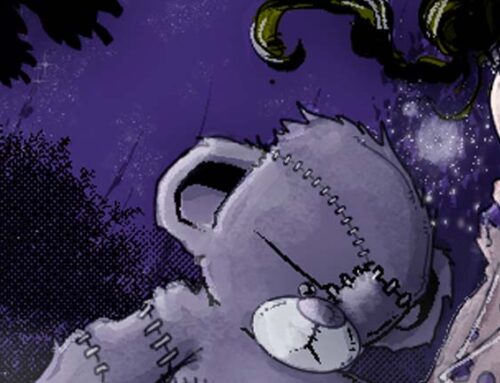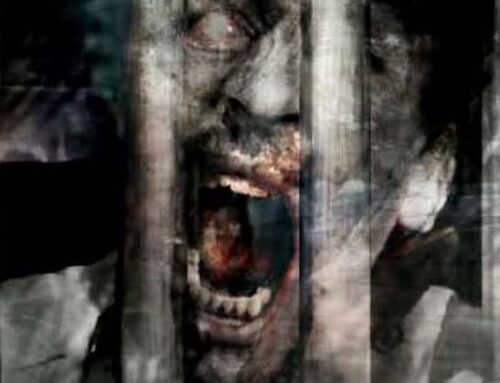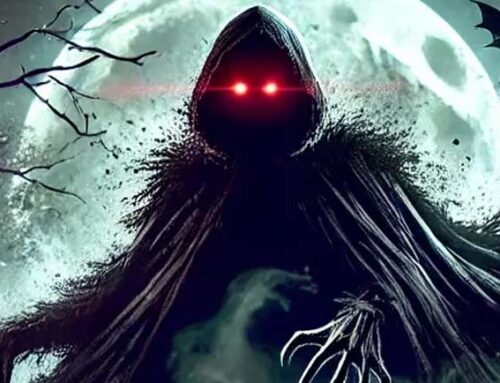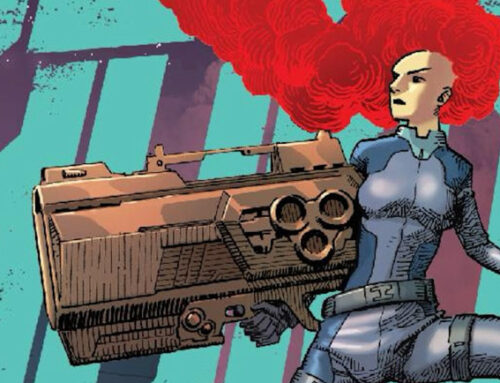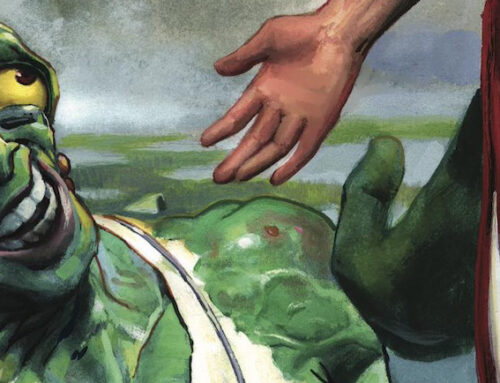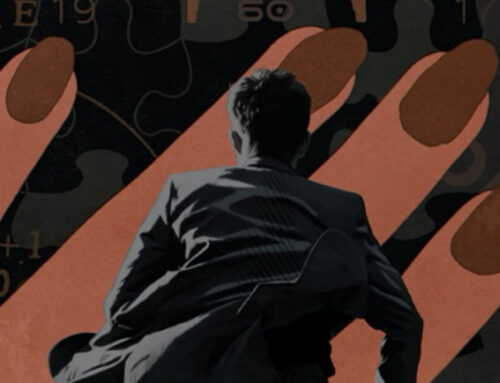Last 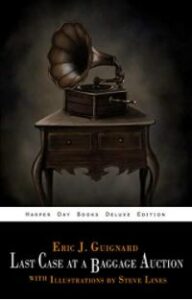 Case at a Baggage Auction is a swift, enjoyable horror-mystery yarn. Here, Bram Stoker Award-winning author Eric. J. Guignard granted one of his earlier novellas an “Author’s Preferred Text.” What does this mean? The term for books is synonymous with that of a director’s cut for film—instances where established writers rerelease previous work in authorized expanded or restructured editions. Some of the most notable cases are Stephen King’s The Stand, Chuck Palahniuk’s Invisible Monsters Remix, and Neil Gaiman’s Neverwhere.
Case at a Baggage Auction is a swift, enjoyable horror-mystery yarn. Here, Bram Stoker Award-winning author Eric. J. Guignard granted one of his earlier novellas an “Author’s Preferred Text.” What does this mean? The term for books is synonymous with that of a director’s cut for film—instances where established writers rerelease previous work in authorized expanded or restructured editions. Some of the most notable cases are Stephen King’s The Stand, Chuck Palahniuk’s Invisible Monsters Remix, and Neil Gaiman’s Neverwhere.
For this edition, published by Harper Day Books, Guignard has not only restored the text and the story’s original title, but also has detailed its origins and publication history in a new afterword. In terms of production, the novella is sophisticatedly presented with a cover design that homages Penguin Classics paperbacks and black-and-white illustrations by Steven Lines.
The narrative takes place in 1963 Detroit and follows a pair of baggage auction bidders named Charlie Stewart and Joey Third. Their latest auction wins include a mysterious suitcase with a gramophone inside. Accompanying the gramophone is a set of peculiar records. When played, they emit cacophonous music and sinister chants in an unending cycle. Over the next few days, Charlie must find a way to destroy the evil preserved in the records before it takes the souls of everyone in his apartment building.
What truly stands out in this short novel is Guignard’s command of voice and tone. Written in first person, Guignard imbues Charlie’s voice with a working-class vernacular eloquence that harkens back to the days of film noir. But he never takes the proceedings too seriously; there’s plenty of room for fun. The straight-forward style allows for numerous instances of humor to pepper the narrative and flesh out Charlie’s outlook on life. For example, an aside about the shame in tripping and getting carpet burn during the conclusion had me laughing out loud.
Since the narrative goes in some uncanny directions, suspension of belief is crucial to enjoying this book. However, the plot structure is worn. To clarify, this is not a fault of Guignard’s unique story, but rather a result of tried and true mystery-horror tropes becoming so standardized that it has become easy to discern glue the holding everything together. An example of this is when Charlie defers to an expert opinion to learn more about the unholy records. Another instance is a slight over-reliance on exposition from a book Charlie reads to contextualize the horrific events taking place. But overall, these don’t affect the pacing of the narrative, which is crucial for a shorter work of fiction.
My only other complaint is that Charlie’s girlfriend Gail doesn’t have much to do in the story. This doesn’t mean that she is underwritten. It is commendable how Guignard casts her as a socialite with an independent air, focused on upward mobility and security. She also has a tenderness that serves as a foundation for her and Charlie’s relationship. Charlie has a bad habit of showing up late to appointments or canceling dates, as well as a general lack of direction in life. I personally think she’s too generous when it comes to noting Charlie’s character flaws; Charlie does acknowledge that she could have left him at any time, but still sticks by his side for better or worse. Because of this, I only read her as a foil for a life Charlie could possibly have; with the exception of the ending where Gail has to save Charlie, she either comes across as disappointedly cross or doting, depending on the situation. But hey, was Grace Kelley’s Lisa Freemont character any better utilized in Rear Window?
That being said, Guignard keeps the story light and bouncy, without sacrificing urgency. He doesn’t need to resort to extreme horror descriptions to disgust the reader, because the characters are the focus of the story and the horror is strongly represented in the first place. Readers who have enjoyed Stephen King’s The Colorado Kid and Joyland from Hard Case Crime would dig Last Case at a Baggage Auction’s similar breezy style and tone. Personally, I think it would make a good episode on Jordan Peele’s revamped Twilight Zone.
Rating 8 out of 10 stars

